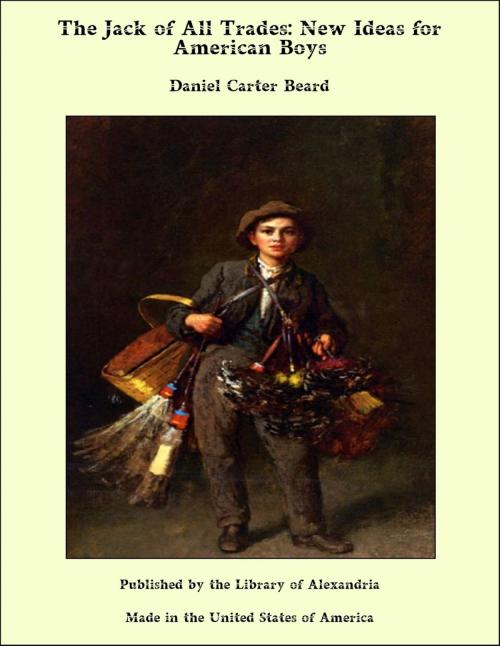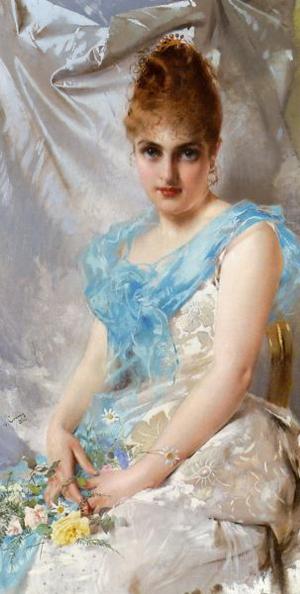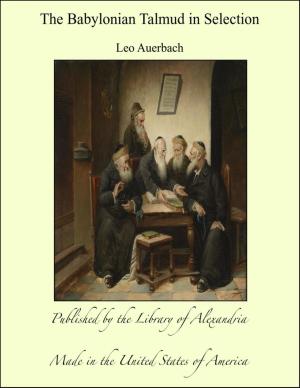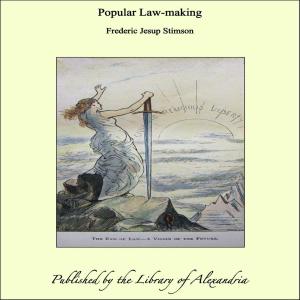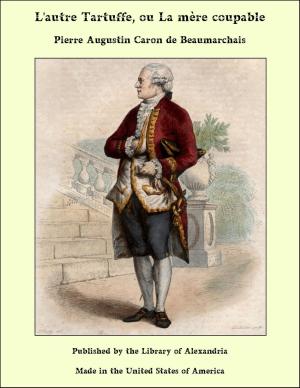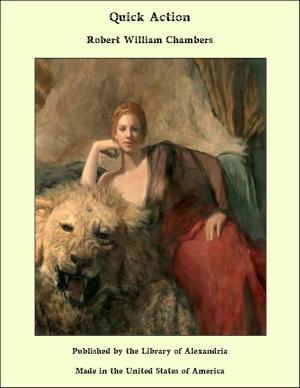The Jack of All Trades: New Ideas for American Boys
Nonfiction, Religion & Spirituality, New Age, History, Fiction & Literature| Author: | Daniel Carter Beard | ISBN: | 9781465604064 |
| Publisher: | Library of Alexandria | Publication: | March 8, 2015 |
| Imprint: | Language: | English |
| Author: | Daniel Carter Beard |
| ISBN: | 9781465604064 |
| Publisher: | Library of Alexandria |
| Publication: | March 8, 2015 |
| Imprint: | |
| Language: | English |
It was not the author’s original intention to produce a series of boys’ books. On the contrary, he expected that his work in this line would begin and end with “The American Boy’s Handy Book.” The great popularity of that book is a constant source of gratification and pleasure to the author; but he was not a little surprised and embarrassed when he discovered that in place of satisfying the lads he had only whetted their appetite for more material in the same line. Letters from boys in many parts of the British Provinces, and from all over the United States, convinced the writer that he had yet work to do for them, and the revised and enlarged edition of “The American Boy’s Handy Book” was issued. After a brief period of time the quaintly worded letters in boyish handwriting began again to increase the mail left at the author’s studio, and this time he laid aside his brush and pencil to produce “The Outdoor Handy Book.” It is hoped that the present demand for new ideas for boys will be fully satisfied by “The Jack of All Trades.” To the best of the author’s knowledge and belief there is not a thing described in this book which has not been proved practical by the experiments of himself or some boy or boys. Parts of this book have appeared in various periodicals, but all these chapters have been revised and enlarged. It is now a generally accepted truth that the so-called skill of the hand is in reality the skill of a trained mind. The necessity, in work or play, of constantly overcoming new obstacles and solving new problems, develops a strong and normal mind and body. There can be little doubt that the rude schooling and hard knocks of a pioneer’s life rejuvenated our race and developed those qualities in the characters of Americans, without which Washington would have been but a country gentleman and Lincoln a village store-keeper. Had little Abe Lincoln been reared under the care of a foreign woman with cap and ribbons (i.e. a French nurse), his strong manly character would never have been developed and our country would have lost one of its grandest patriots and history its most unique figure. Aside from these vitally important facts, art demands that our youth should be encouraged to do things for themselves, to produce things by their own labor. The most finished product of the machine cannot appeal to the heart of a real artist as does some useful and homely object which still bears the marks of its maker’s hands.
It was not the author’s original intention to produce a series of boys’ books. On the contrary, he expected that his work in this line would begin and end with “The American Boy’s Handy Book.” The great popularity of that book is a constant source of gratification and pleasure to the author; but he was not a little surprised and embarrassed when he discovered that in place of satisfying the lads he had only whetted their appetite for more material in the same line. Letters from boys in many parts of the British Provinces, and from all over the United States, convinced the writer that he had yet work to do for them, and the revised and enlarged edition of “The American Boy’s Handy Book” was issued. After a brief period of time the quaintly worded letters in boyish handwriting began again to increase the mail left at the author’s studio, and this time he laid aside his brush and pencil to produce “The Outdoor Handy Book.” It is hoped that the present demand for new ideas for boys will be fully satisfied by “The Jack of All Trades.” To the best of the author’s knowledge and belief there is not a thing described in this book which has not been proved practical by the experiments of himself or some boy or boys. Parts of this book have appeared in various periodicals, but all these chapters have been revised and enlarged. It is now a generally accepted truth that the so-called skill of the hand is in reality the skill of a trained mind. The necessity, in work or play, of constantly overcoming new obstacles and solving new problems, develops a strong and normal mind and body. There can be little doubt that the rude schooling and hard knocks of a pioneer’s life rejuvenated our race and developed those qualities in the characters of Americans, without which Washington would have been but a country gentleman and Lincoln a village store-keeper. Had little Abe Lincoln been reared under the care of a foreign woman with cap and ribbons (i.e. a French nurse), his strong manly character would never have been developed and our country would have lost one of its grandest patriots and history its most unique figure. Aside from these vitally important facts, art demands that our youth should be encouraged to do things for themselves, to produce things by their own labor. The most finished product of the machine cannot appeal to the heart of a real artist as does some useful and homely object which still bears the marks of its maker’s hands.
